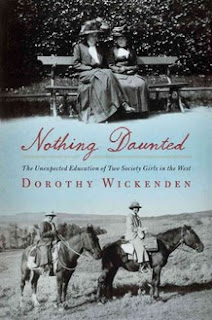In Everything Beautiful Began After, the author's first full-lenth novel, three young, lost individuals have come to Athens and their paths cross. George, an American from Kentucky with a boarding school past and a drinking problem, has come to Athens to get lost in ancient languages; Henry, from England, is there on a dig as a successful young archaeologist; and Rebecca, French, is an artist seeking inspiration and trying to find herself. The events of their summer together will prove to affect each one of them more than expected and continue to define them.
This is not my first encounter with Van Booy; I read his latest short story collection, The Secret Lives of People in Love, last year and the language was something of which I definitely took note. Like in his short stories, his language, to me, borders on exquisite and trite. I think certain sentences are beautiful and subtly capture a feeling:
Like some devout follower of an obscure religion, he was moved to tears frequently by what he perceived as divine moments—like rain on the window or the smell of apples, or a man reading a book with his daughter in the park; a flock of passing birds. (p. 91)
"How does it feel holding the leg of someone who once lived?"..."I wonder about their lives—not the main events, but small things, like drinking a glass of water, or folding clothes, or walking home." (p.105)
...and some are overly descriptive, like they're forcefully trying to make a poetic statement someone will underline:
He would give up his search for the dead. Love is like life but longer. (p.188)
Language is like drinking from one's own reflection in still water. We only take from it what we are at that time. (p 275)
Van Booy had more room in this novel to fully flesh out his characters than in his short stories, so I found that he relied less on the pithy one-liners to grab the reader's emotion. In this book, it wasn't really the language that made me roll my eyes at times, it was the writing style. The Prologue begins with a third-person omniscient perspective on the abstract existence and thoughts of some unknown child; the story continues with a third-person storytelling of our characters; a section later delves into communication between Henry and George strictly through images of fax machine letters (which I quite liked a lot!); and then it goes into the rare second-person perspective of Henry, and this is where I just said, "Oh boy..." Call me unappreciative of fine literary technique, but I just can't appreciate. This last section struck me as using various writing techniques just for the sake of it; I'm not sure what purpose it actually served and whether the story benefited from it. But at least it didn't feel too gimmicky.
I think Van Booy is talented with his use of language; he's mastered his own personal writing style. Nothing against him, but I'm just not sure I have the tastes to completely appreciate it. I roll my eyes at sap; I roll my eyes at 99% of poetry. It's just not my thing. I can appreciate a lot of what Van Booy says; my inner-cynic just needs it in small doses.






